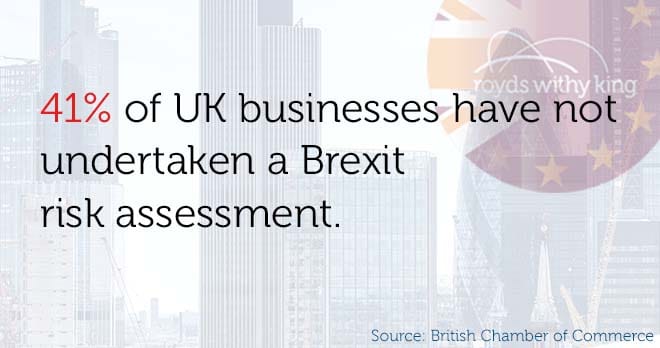British Chamber of Commerce reveals number of businesses still not ready for Brexit

Further to this, many internationally active UK organisations are still not aware of special customs and trade schemes such as:
- Transitional Simplified Procedures, which allow import declarations and duty to be submitted after goods have entered the UK;
- Authorised Economic Operator status, which can enable goods to be fast-tracked through customs checks; and
- Customs Comprehensive Guarantees, which create an agreement between a business and HMRC to cover multiple items of customs debt.
The BCC have successfully campaigned for the government to automatically issue EORI numbers to all VAT-registered businesses, which are required for moving goods into and out of the EU and will thus become crucial post-Brexit. They are now pushing for further auto enrolments or support to access these other important customs and border facilitations.
Businesses are facing significant changes on multiple fronts, and need official guidance that is consistent, precise and easily accessible, enabling them to trade in any scenario.
Even with the ongoing uncertainty around the outcome of Brexit, businesses need to make sure that they have undertaken extensive risk assessments. Businesses trading only in the UK should take into account of the impact to their suppliers, customers and the economy as a whole. Those who operate internationally should also be clear about which relevant customs and trade schemes are available and how they would apply to their businesses.
Caroline Doran Millett, International Employment Partner says “A Brexit HR Risk Assessment should consider matters such as reliance on EU nationals as staff or requirements for additional seasonal staff. As practical solutions, some businesses are starting seasonal recruitment earlier, encouraging current staff to do overtime, or considering supplementary recruitment methods to attract from a wider pool.”